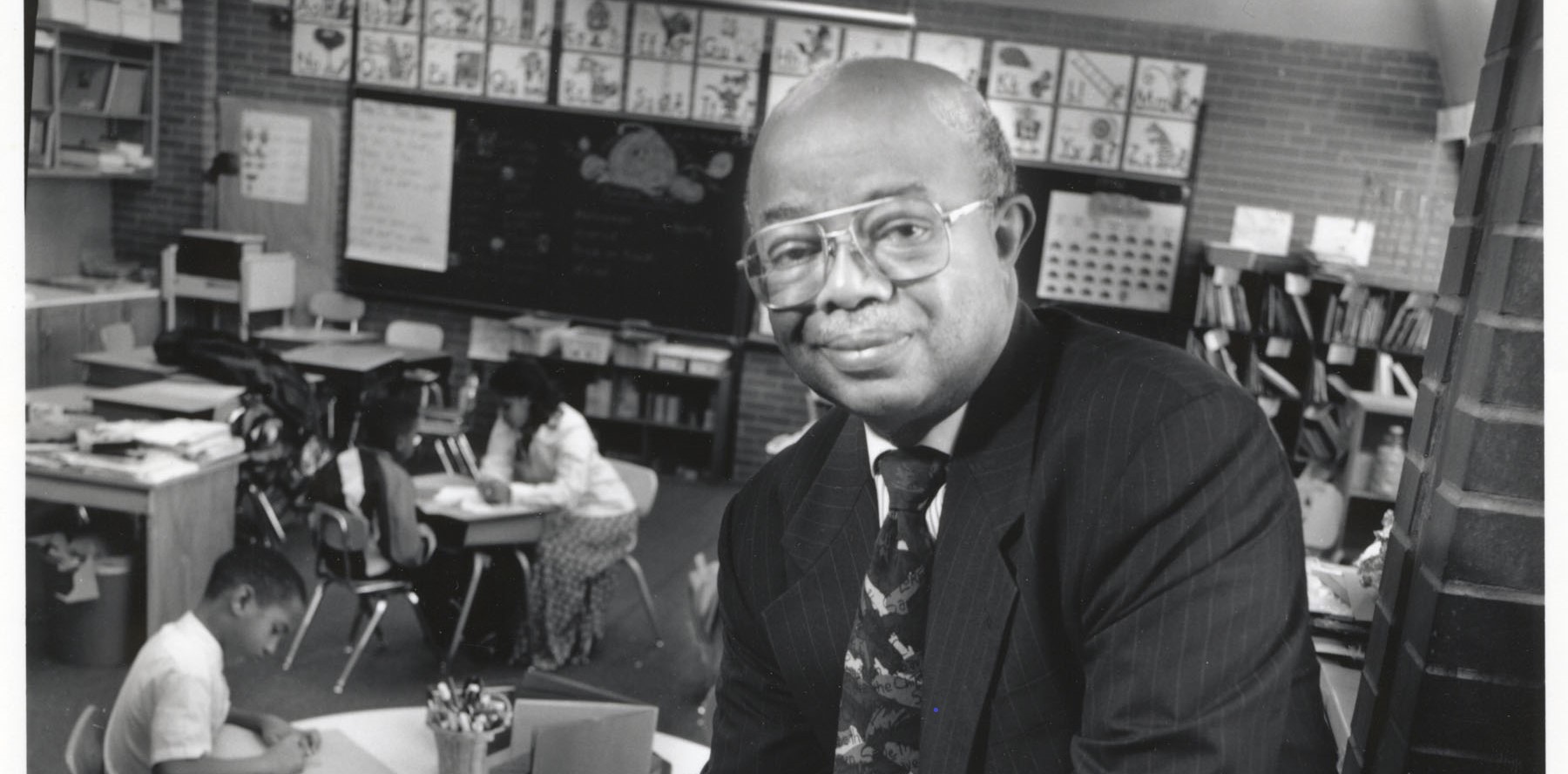

Photo: Jim Harrison
James Comer
Human Condition
3rd Heinz Awards - 1996
Dr. James P. Comer received the 3rd Heinz Award in the Human Condition for his profound influence on the lives of thousands of disadvantaged children through his visionary approach to public education.
Dr. Comer’s School Development Program has been instrumental in shaping the ways educators, administrators, and parents view their respective roles in improving the quality of America’s schools. “The Comer Model,” currently improving the educational climate in over 600 schools in 20 states and the District of Columbia, suggests that everyone with a stake in a school should have a say in how it is operated. It calls for forming a diverse school governance team made up of teachers, parents, principals, students, janitors, cafeteria workers and psychologists. Together, this team develops a comprehensive school operational plan and then works together to implement it. A tireless advocate for children who brings an extraordinary mix of passion and patience to his work, Dr. Comer is part preacher, part scholar and all parent.
Raised by parents who left him with no doubt as to the importance of education, Dr. Comer and his four siblings all graduated from college. He attended Howard University Medical School and, following his military service, settled on psychiatry as his specialty. Early on, he began to envision ways to motivate learning by creating a family-like atmosphere in schools.
Dr. Comer first put his ideas to work at the Yale Child Study Center. In 1968 his School Development Program was established in two elementary schools as a collaborative effort with the New Haven Public Schools. By 1980, the two formerly failing schools boasted academic performance surpassing the national average and sharp declines in truancy and disciplinary problems. A follow-up study tracked 24 students through three years in a Comer school and compared them with 24 students in another New Haven school. The “Comer children” were found to be more than a year ahead in reading and math.
In many communities, the Comer Model has transformed what Dr. Comer calls the “culture of the school.” Children, parents and educators have forged alliances that have helped create better-adjusted, healthier and more successful students. Not only has there been dramatic academic improvement, but major social improvements have also taken place. The many institutions that come into contact with children - like clinics, mental health centers, libraries and child care centers - have learned to work in concert for the welfare of children. Now almost a cliché, this notion of “services integration” was one of many areas in which Dr. Comer was a pioneer.
With humility and dignity, and without an ounce of self-importance or vanity, Dr. Comer represents the embodiment of the virtues he works to develop in children. He set out to remedy a problem he sees as even more fundamental than lack of academic achievement in our inner-city schools: a deficiency in what he refers to as the three R’s of a social kind - respect, responsibility and resiliency. “We’re blaming the problems of society on the schools,” he notes. “We failed as a society to invest in families and communities after World War II and, as a result, families began to not function as well and social problems increased, and many people weren’t able to prepare their children for school. We then blamed the schools.” Dr. Comer is not interested in ascribing blame, only in removing the obstacles that keep children from reaching their full potential.
Note: This profile was written at the time of the awards’ presentation.
